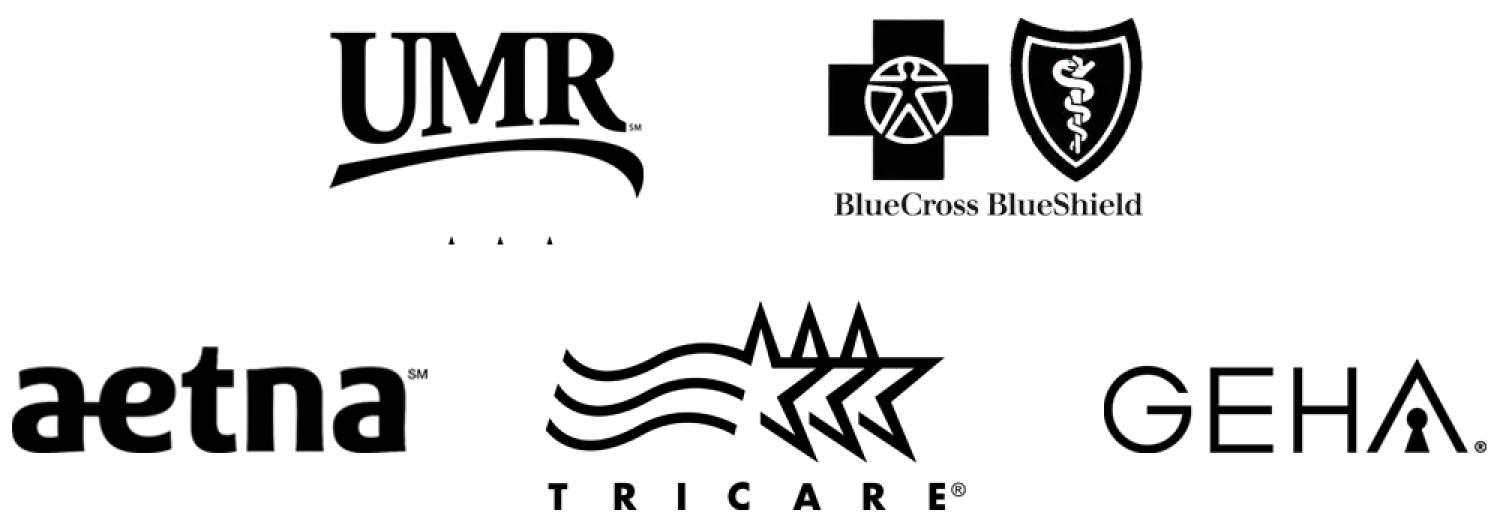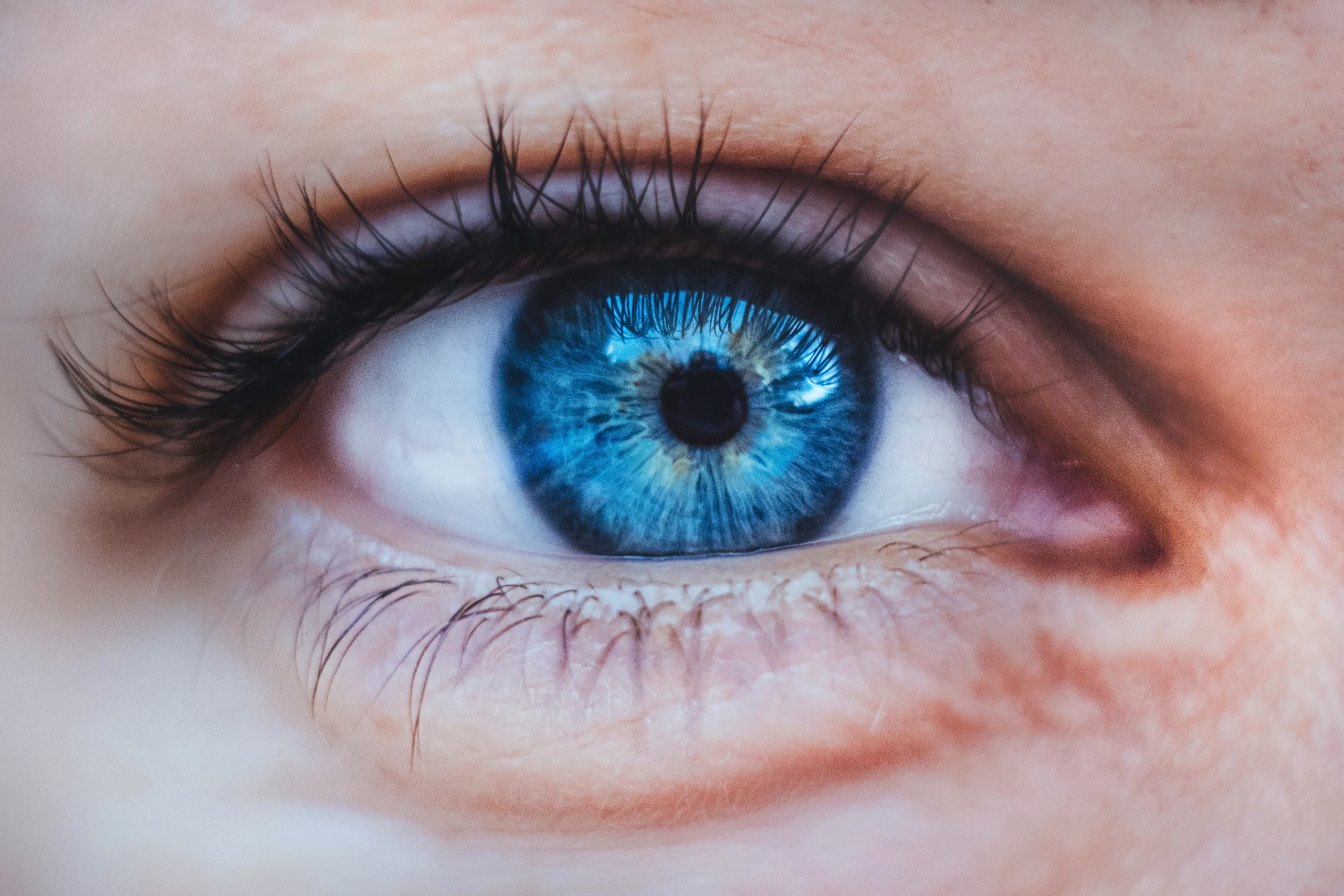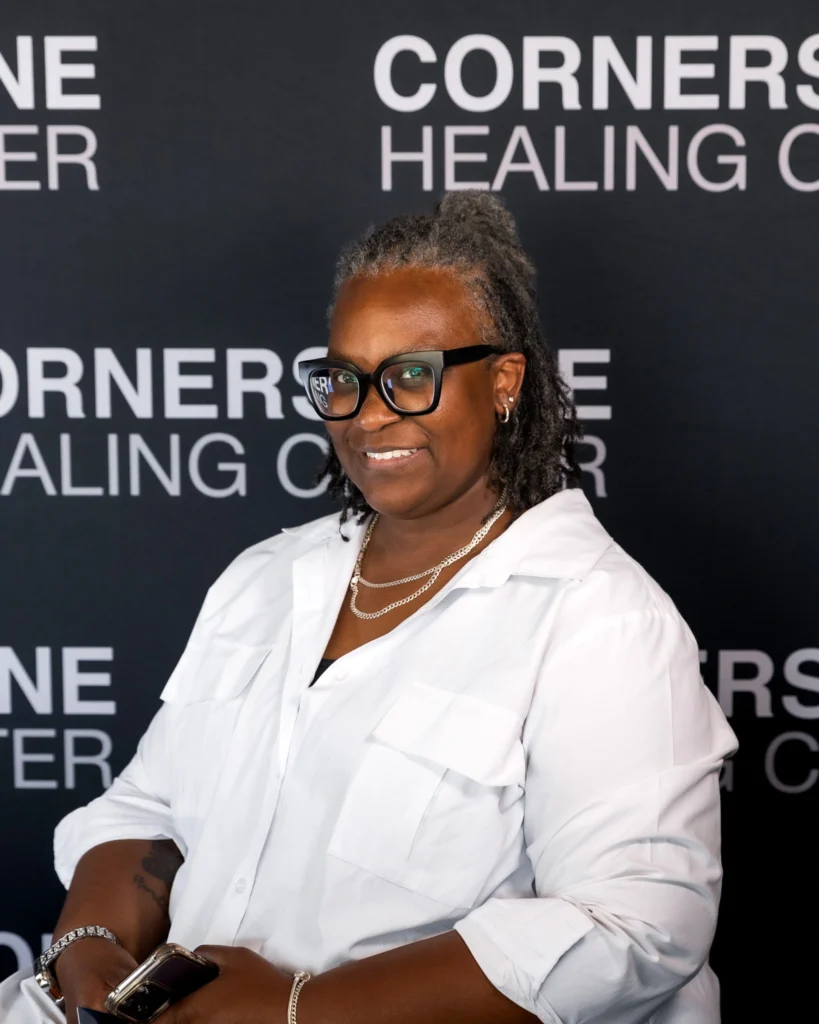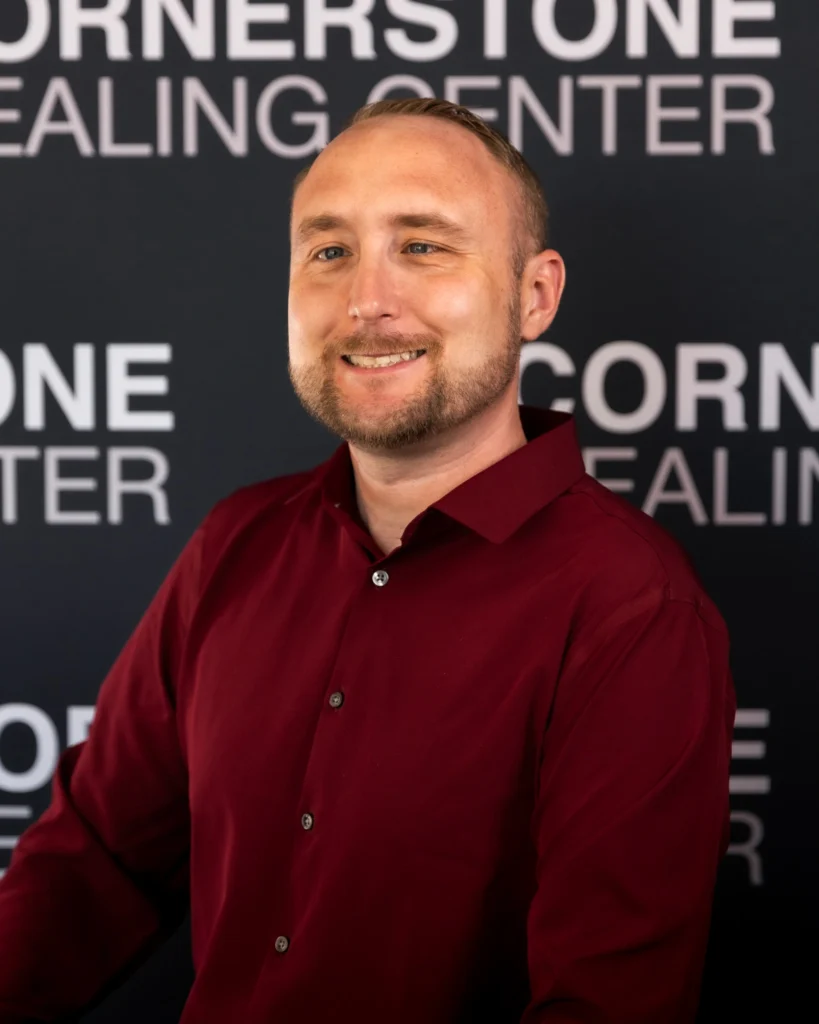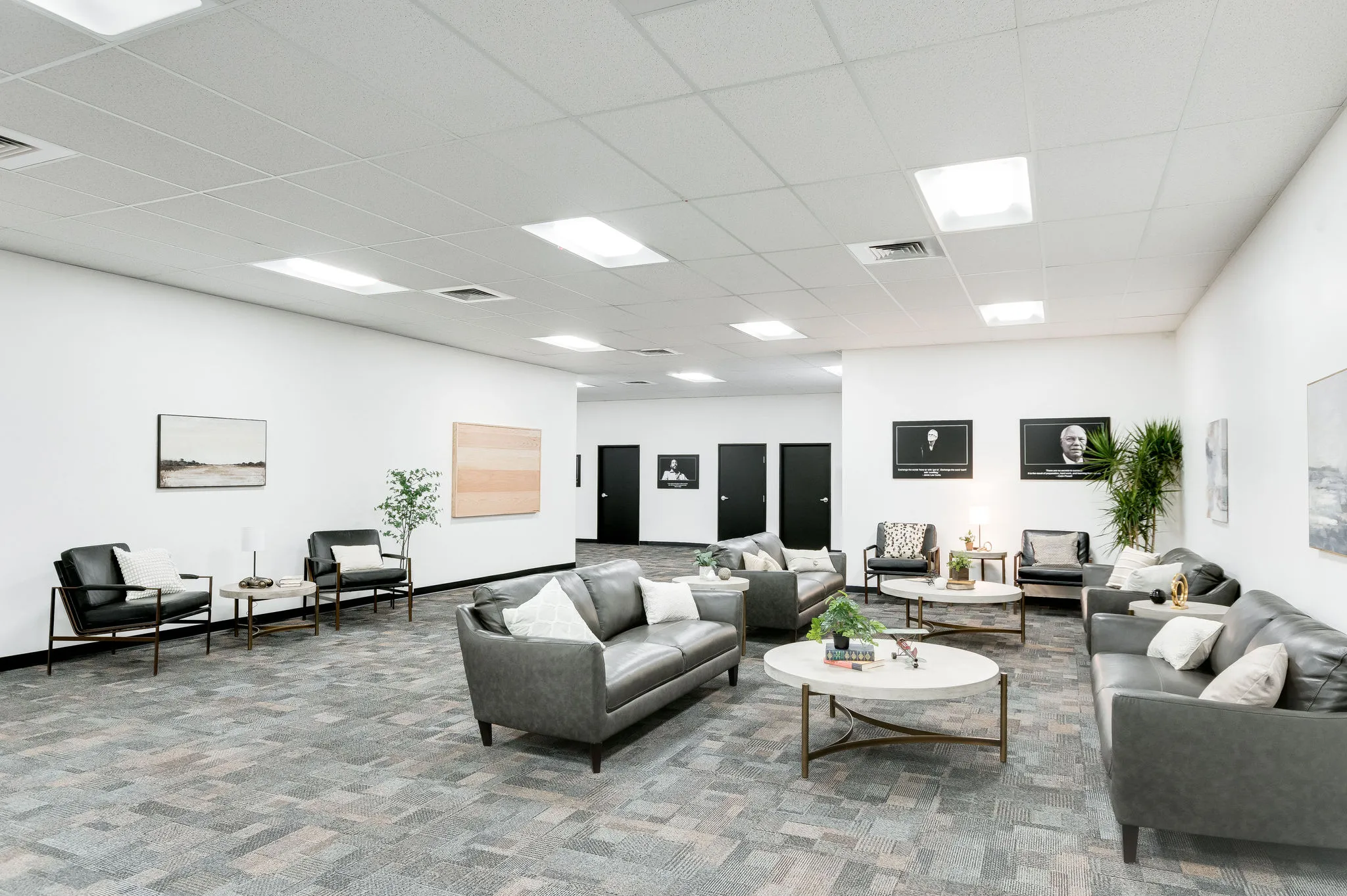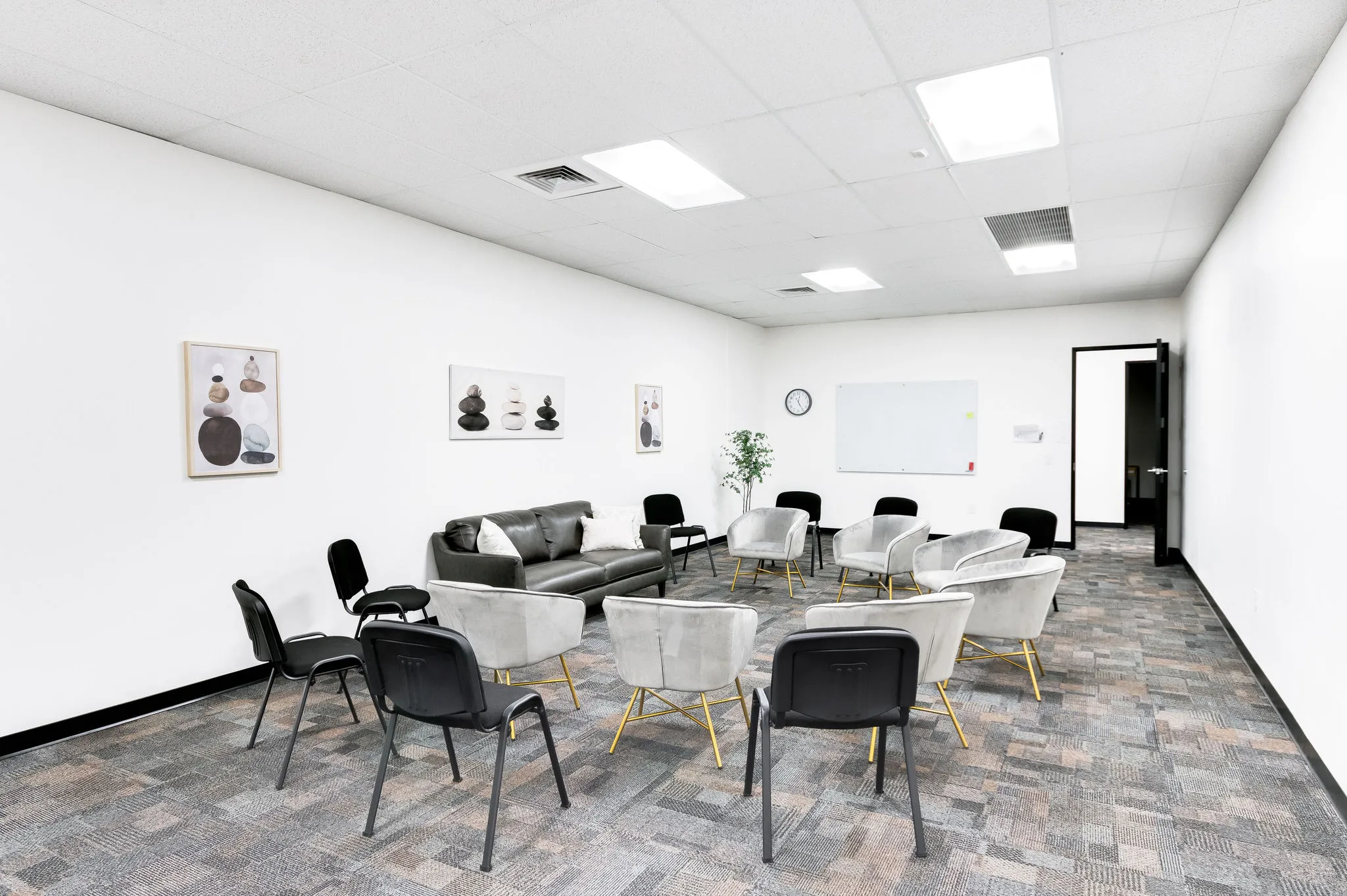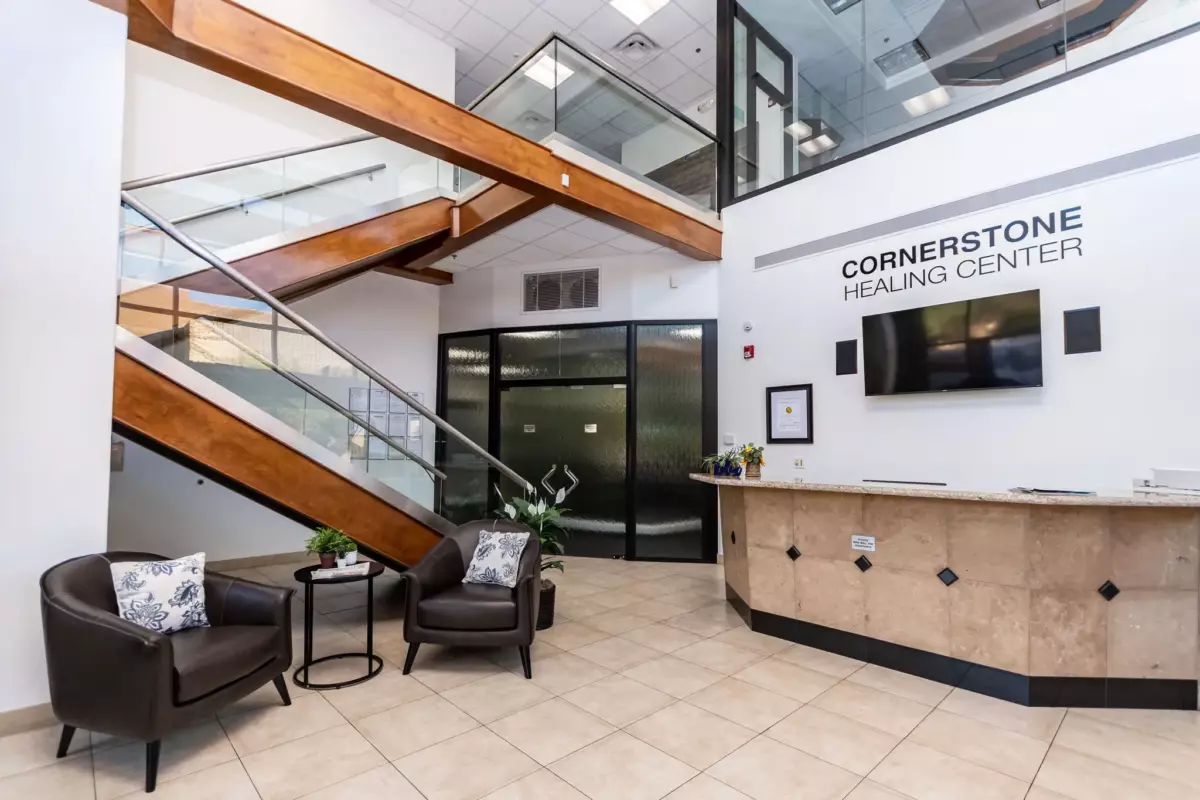Cornerstone
Co-Occurring Disorder Treatment
Start the journey to recovery today
How Cornerstone Treats Co-Occuring Disorders
Cornerstone is a Scottsdale rehab center that offers co-occurring disorder treatment. Understanding the disorder and its specific requirements, we provide the following when caring for our clients:
- Professionals who are highly trained in co-occurring disorder treatment.
- We offer a variety of therapy models, including counseling, therapy, motivational interventions, withdrawal, and aftercare.
- We provide various programs including residential and outpatient programs. Programs up to 90 days, sometimes beyond if needed.
- Individualized treatment plans to address co-occurring disorders and determine if the co-occurring disorder is drug-induced or pre-existed before the addiction began.
We are dedicated to transforming lives and propelling individuals into long-term recovery from addiction. Our Co-occurring Disorder Programs in Scottsdale offers:
- Evidence-based care and treatment
- Psychoeducation on mental health and addiction
- Qualified mental health professionals
- Over 6 levels of care and additional programs
- Drug and alcohol treatment that fits your lifestyle and needs
- A strong emphasis on holistic healing of the mind, body, and spirit
- Support staff are there to assist you at every step of your journey
- Aftercare plans that are designed to help our clients succeed long-term
Addictions we treat at Cornerstone
We approach co-occurring substance abuse disorders with care
Cornerstone Healing Center is one the most highly rated rehab centers in Scottsdale, Arizona. We offer exceptional recovery services for substance use disorder and are a co-occurring disorder treatment center.
Our facilities provide its clients with professional help, courtesy, respect, and passionate professionals that are determined to ensure the long-lasting recovery of our clients. We focus on providing personalized, unique treatments to each individual so that every unique issue is handled with care, attention, and suitable therapies.
For co-occurring disorder treatments, our professional clinical team ensures that each treatment plan is designed to include therapeutic interventions for both mental illness and substance use disorder.
At Cornerstone rehab, we provide our clients with determination, courage, and strength to overcome mental health obstacles and eliminate all hurdles to reach their full potential.
When considering genders, men are far more likely to develop co-occurring disorders. Data shows that 56% of individuals who require co-occurring disorder treatment are men.
Another study found that individuals with drug addiction are 1.3% more likely to develop depression. Those with a history of addiction are 1.3% more likely to develop an anxiety disorder.
Individuals suffering from untreated mental health disorders are already more likely to develop co-occurring disorders, but within that statistic, men are still more likely to be targeted.
Our treatment of co-occurring disorders
Many mental health disorders have overlapping signs and symptoms with others, especially in the case of substance use disorders. It can be challenging to identify and separate the two.
As a common rule, every individual with a mental disorder should also be screened for a substance use disorder. After treatment, they should be screened again to eliminate the chances of co-occurring disorders.
There are a lot of causes that play into the occurrence of a mental health disorder. The reasons behind such disorders can be genetic, to environmental factors, or trauma. These causes and diagnosed conditions can then lead to co-occurring disorders.
To ensure the correct assessment, any professional should;
- Establish a diagnosis of substance use disorder along with a mental illness. This diagnosis should include the treatment plan, the consequences, and the effect on the individual’s life.
- A personalized treatment plan that will ensure improvement should also be included. These can consist of treatment therapies but also social interventions.
- Lastly, appropriate tests should be carried out to recognize the severity of the damage done.
We Treat Co-Occuring Disorders
Cornerstone Provides Integrated Treatment
Co-occurring disorder treatment requires special attention to treating both mental illness and addiction. The two are meant to be treated separately and unitedly to ensure the elimination of certain habits that aggravate the situation.
Cornerstone uses integrated treatment to help our patients heal from co-occurring disorders.


Benefits of Integrated Treatment
Integrated treatment plans have become the standard of help for co-occurring disorders by the Substance Abuse And Mental Health Services Administration, a regulatory authority in the US.
The treatment plan is highly recommended since it is recorded to have shown significant positive improvements in clients. It encourages the clients to be more engaging and participate in their treatment plans to ensure a smooth recovery.
Integrated treatment plans are also highly likable since they are designed considering each client’s needs. Co-occurring disorders are not always the same. While the occurrence of a substance use disorder is present, the simultaneous mental illness differs. We believe that each client requires a unique treatment plan for their conditions.
Additionally, the plan allows the client to be involved in the process, giving them the platform to decide what they are comfortable with, how they want to proceed, and how fast they want their recovery. Some people like taking their time to ensure that each recovery process is given meticulous attention, resulting in no relapse.
In conclusion, integrated plans as help for co-occurring disorder treatments result in happier clients, favorable outcomes, independent clients, and long-lasting results.
RESIDENTIAL SUBSTANCE ABUSE TREATMENT
Our Treatments and Therapy Sessions
What does an integrated treatment plan look like?
These treatment plans aim to ensure that individuals dealing with co-occurring disorders are taught how to manage the symptoms of their mental illness and ensure no relapse. Along with teaching them techniques for achieving this goal, they are also assisted in reducing symptoms and triggers that will make them fall back into the self-destructive spiral.
The treatment plan uses multiple behavioral therapy interventions, counseling sessions, and medications to ensure a long-lasting recovery. A variety of therapeutic methods are used.
Cognitive Behavioral Therapy explores a person’s unhelpful or damaging thoughts and behaviors and replaces them with healthier ones. This is especially beneficial for individuals suffering from depression or anxiety.
Dialectical Behavioral Therapy reduces the chances of self-destructive or harmful behaviors such as self-harm, substance abuse, and suicidal ideation. This is especially beneficial for those who have borderline personality disorder.
Contingency Management This therapy allows the therapist to give the client incentives for good behaviors. Clients are given small gifts or tokens when they exhibit positive behavior or achieve one of their therapy goals.
Motivational Enhancement Counselors motivate clients to make the positive changes required for their recovery. They also keep the client in check and ensure they can provide positive support to themselves when needed.
Mutual-Support Groups By attending support groups, individuals feel that they are not alone in their struggles. They learn a lot from their peers and can share their efforts with those who understand their origins. Meetings like Narcotics Anonymous or Dual Diagnosis Anonymous are ordinary for co-occurring disorders.
Besides these therapies, individuals are treated for their substance use disorder. The following treatments are integrated into the plan;
Detox, Or Withdrawal Management The individual is kept under the 24/7 watch of medical staff. They are helped through the detox process and kept an eye on to ensure they do not relapse. Physicians are also present on the spot to provide patients with medications to help ease their pain and safely eliminate the leftover drugs and toxins in their bodies.
Inpatient Care Or Residential Treatment: This facility offers the client constant supervision and help from professionals during their treatment. The client will live in a facility where they can rely on professionals whenever they feel like relapsing. They will also be able to learn to manage their symptoms and learn the technique of doing so themselves while living with the professionals.
Outpatient Care: This plan allows the clients to enjoy similar services to inpatient care without disrupting their routine. Inpatient care requires an individual to live in a facility, meaning they cannot leave for a particular duration. However, outpatients enable clients to carry out their routine work, education, or family life as long as they consistently come in for therapy sessions.
These treatment plans are quite diverse and are further personalized to fit the needs of each individual. By doing so, the permanent and long-lasting recovery of the client is guaranteed.
Programs We Offer
Contact Cornerstone for help today
Cornerstone Healing Center is a leading rehab center in Scottsdale, Arizona. We offer exceptional recovery services for substance use disorder and are a co-occurring disorder treatment center.
Our facilities provide its clients with professional help, courtesy, respect, and passionate professionals that are determined to ensure the long-lasting recovery of our clients. We provide personalized, unique treatments to each individual so that every special issue is handled with care, attention, and suitable therapies.
For co-occurring disorder treatments, our professional clinical team ensures that each treatment plan is designed to include therapeutic interventions for both mental illness and substance use disorder.
At Cornerstone Rehab, we provide our clients with determination, courage, and strength to overcome mental health obstacles and eliminate all hurdles to reach their full potential.
Meet Our Clinical Team
Eboni Fields, MS LPC
Clinical Director of Scottsdale Program
Eboni Fields, MS LPC, is a seasoned Clinical Director who brings over a decade of experience in behavioral health and substance abuse. She is a licensed professional counselor with a Masters in Mental Health Counseling from Grand Canyon University.
Nate Bush, LCSW
Clinical Director of Phoenix Program
Nate began his recovery journey in 2010 and earned a Master’s in Social Work from ASU. He’s been in the Behavioral Health field since 2013. Specializing in CBT, DBT, and grief, Nate is now the Clinical Director of our Phoenix program, underlined by his passion for helping others who struggled with substance abuse issues as he did.
FAQs About Co-Occurring Disorder Treatment
Get answers to the most commonly asked questions about treatment for Co-Occurring Disorder.
Co-occurring disorder or dual diagnosis is when an individual is simultaneously diagnosed with two or more mental health disorders.
Symptoms caused by one diagnosis might indirectly become the cause of another. A depressed person might choose to use substances to enjoy a serotonin boost which can eventually lead to a substance use disorder.
According to Hopkins Medicine, mental health disorders are labeled as the top cause of disability in the market economy. Roughly 26% of American adults suffer from a mental health disorder in a year, meaning 1 in 4 adults are living with a diagnosable and treatable disorder.
Many mental health disorders are often paired with similar conditions that further worsen the individual’s suffering. People with depression often have anxiety and many individuals suffering from a substance use disorder are likely to be diagnosed with ADHD, bipolar disorder, or personality disorders.
This is what we call a co-occurring disorder.
Research shows that disorders can have bidirectional relationships where one might influence or worsen the other. Out of 20.3 million adults who were suffering from substance use disorder, 37.9% were also diagnosed with another mental health condition.
On the contrary, out of 42.1 million individuals suffering from mental health disorders, 18.2% were also diagnosed with a substance use disorder.
Receiving the best help for co-occurring disorders is essential for recovery. Cornerstone Healing Center is a co-occurring disorder treatment center in Scottsdale, AZ. We believe that integrated treatments are ideal for co-occurring disorders treatment. These treatments are personalized to meet the client’s needs and tackle unique issues, allowing them to reach the root cause of the problem and eliminate the point.
Professionals can only diagnose mental health disorders. An in-depth understanding of co-occurring diseases’ signs and symptoms might be complex for friends and family. However, specific symptoms of substance use disorder are easily noticeable and should be considered a warning sign. These include;
- They are isolating themselves from friends and family.
- Abrupt changes in their behavior, such as being more irritated, less patient, and angrier.
- They are facing difficulties in fulfilling everyday tasks.
- They indulge in risky behavior such as driving under the influence, changing social groups, or changing partners.
- They no longer focus on their health or hygiene.
- They lose control over their use of substances.
- They have a high tolerance for substance usage.
- They are showing signs of withdrawal.
These warning signs can be an excellent indicator for friends and family to get their loved ones to help with co-occurring disorders.
The most commonly occurring disorders along with substance use are depression, anxiety, bipolar disorder, post-traumatic stress disorder, and personality disorders.
Some general signs of co-occurring disorders to look out for include;
- An increase or decrease in their eating and sleeping routines.
- They lack interest in hobbies that they once adored.
- They have increased emotional reactivity.
- They show fear without reason.
- They are having difficulty concentrating or thinking.
- They are more irritable and tend to get angry quickly.
- They are no longer giving importance to cleanliness or health.
- They are complaining about body pains without genuine cause.
- They seem to have lost touch with reality and are acting paranoid. They might also be experiencing hallucinations or delusions, which they explain to you as life events.
If you ever notice your loved ones showing signs of suicidal ideation, seeming distant and lost in thought, or confused about daily matters, consider reaching out to Cornerstone Healing Center to ensure that their disorders are diagnosed and treated effectively.
Mental health disorders often act as a risk factor for substance use disorders. It’s relatively common among individuals suffering from mental illnesses to rely on drugs and substances to reduce or overcome the symptoms of their condition.
It can be in the form of self-medication, where the individual is using antidepressants or anti-anxiety medication without a prescription or guidance from a professional. Many tranquilizers, benzodiazepines, and sleeping pills are also readily available by illegal means, which results in unsafe usage to relieve symptoms of illnesses.
Also, some people are introduced to drugs by friends to calm them down. Marijuana is ideal at first for slowing down the “fight and flight” mode of the body, relaxing an individual, and inducing a serene feeling. However, long-term use can make an individual dependent on the drug, cause addiction, and worsen their illness.
It is challenging to state which comes first; the illness or the addiction. But it is known that both play a role in influencing the other. Suppose an individual has a family history of addiction or mental disorders or is grown up in an environment where addiction is considered normal. In that case, they are more likely to adopt those habits.
People with co-occurring disorders often misuse drugs because they feel they have no other option.
Under the Affordable Care Act, insurances covers co-occurring disorder treatment. Most insurance plans cover these costs, and some even cover them under the physical disorder section.
Moreover, Federal Laws ensure that no extra or unnecessary restrictions prevent individuals from getting insured treatment for their mental health disorders.
It is every individual’s right to live with the healthiest versions of themselves. Learning to manage a co-occurring disorder is already quite frustrating without adding the pressure of insurance coverages.
At Cornerstone Healing Center, most private insurances are covered, which include;
- Aetna
- Blue Cross BlueShield
- United Healthcare
- Meritain Health
- Cigna
- GEHA
- UMR
- Health Choice
- Mercy Care
- TriCare
- TriWest
The best way to find out how much your health insurance policy covers substance abuse treatment is to allow us to verify your insurance.
Still have questions about treatment?
Our admissions specialists are here to explain the process, answer any questions you may have, and ensure you’re getting the help you need to live a healthy life free from addiction.

Get Started
Now
Call and speak with one of our caring team members about help for you or a loved one.
